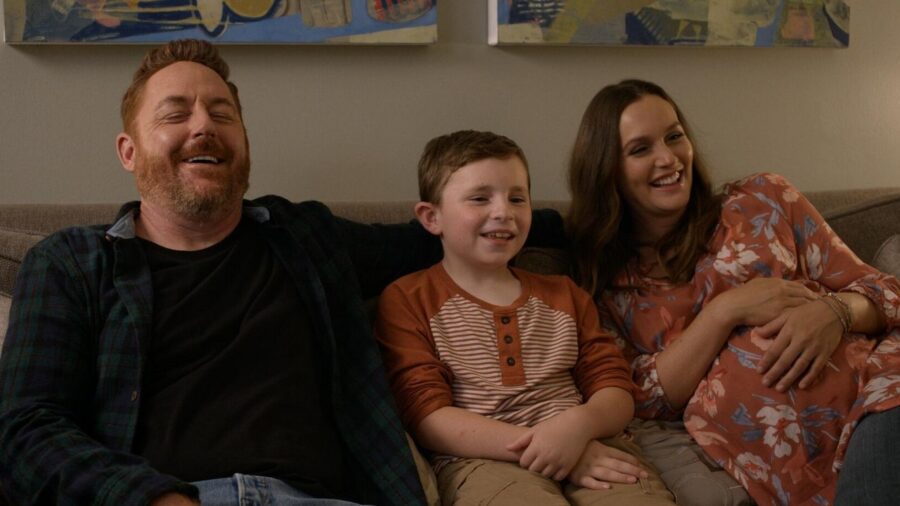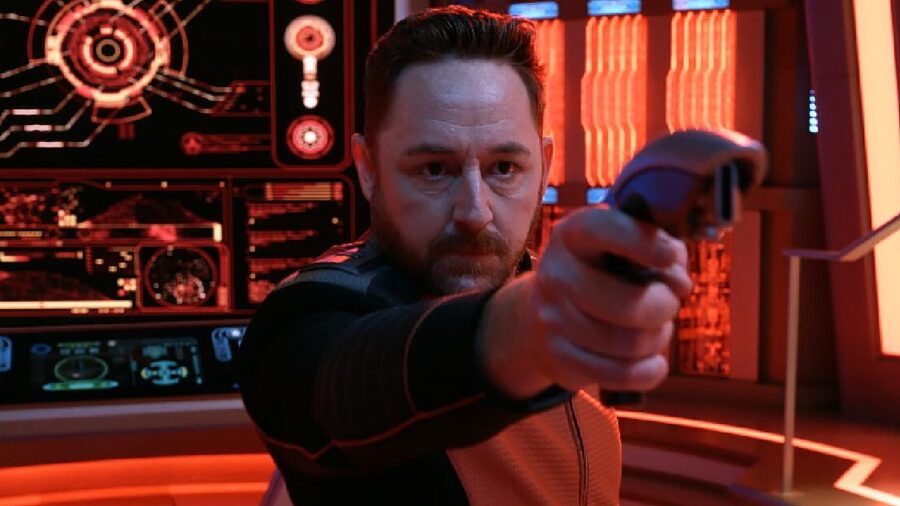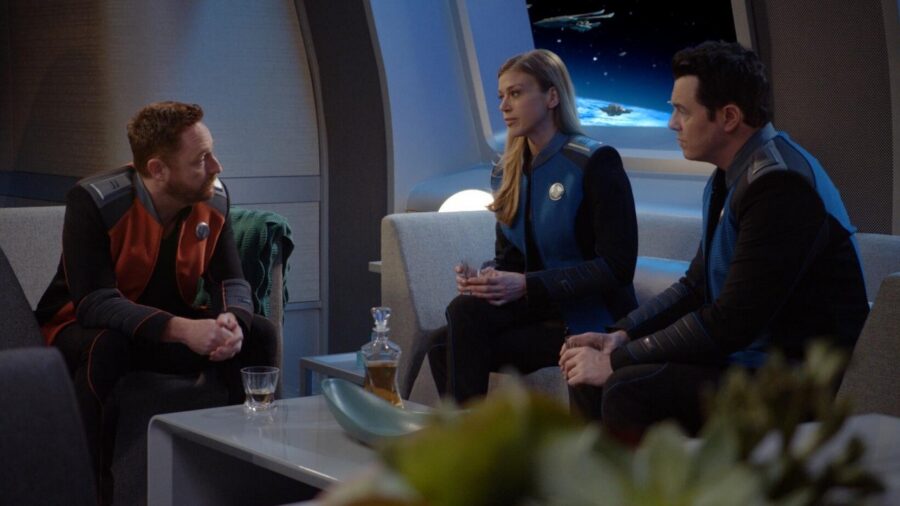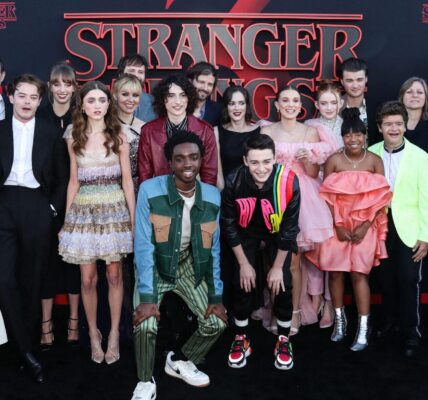By Jonathan Klotz
| Published

The Orville may have originally been marketed as a parody of Star Trek by the mastermind behind family guySeth MacFarlane, but by the time the third season finally aired in 2022, it had long become one of the best sci-fi shows of the decade. “Twice in a Lifetime,” the sixth episode of Season 3, proved that a series featuring a discussion of urinating aliens in the pilot was capable of eliciting strong emotions that most shows never achieve. To this day, fans debate the episode’s ending and whether our heroes actually made the right decision.
Twice in a lifetime

“Twice in a Lifetime” is a Gordon (Scott Grimes)-centric episode that serves as a sequel to The Orville The flagship season 2, “Lasting Impressions.” At the time, Gordon created a holographic program based on information from a phone placed in a time capsule in Saratoga Springs, New York, in 2015. The woman, Laura Huggins (Leighton Meester), becomes the woman of Gordon, and he falls in love with her digital recreation but ultimately lets her go.
The second time, instead of falling in love with the digital version of Laura, Gordon finds himself sent back in time thanks to the Aronov device which destroys the time stream again. Abandoned in 2015, Gordon searches for the real Laura Huggins, meets her, falls in love again, has children with her and lives his perfect life. The Orville, on a mission to save Gordon before he destroys the timeline, lands in 2025, where Ed (Seth MacFarlane) and Kelly (Adrianne Palicki) confront their navigator.
An act of betrayal

The Orville really hit its stride when stories started focusing on characters and less on sci-fi tropes, but here, under the watchful eye of producer Brannon Braga, the man responsible for some of the Star Trek: The next generation best episodes, it’s the perfect mix of both. There’s no real villain in “Twice in a Lifetime,” and the climax is an intense debate between Gordon, trying to make the case for this perfect life, and Ed and Kelly, insisting that the timeline must be preserved.
Given how the second season finale played out, it’s ironic that Ed and Kelly take the position that they are, especially as Gordon explains that he spent three years alone in the wilderness, avoiding contact with people to help keep the timeline intact. A different series would have allowed Ed and Kelly to convince Gordon with a logical and superior argument about the needs of the many. But The Orville is constructed differently, and the real solution is a shocking and heartbreaking act of betrayal.
The Orville, refueled and ready to travel back in time, travels back to 2015, before Gordon met Laura and retrieved him from the wild after just four months away, and this version of Gordon is happy to be back. 2025 Gordon returned to his family, hugged them, told them he loved them, and enjoyed a few moments before they were all erased from the timeline when 2015 Gordon was transported back to 2422. There, Ed and Kelly explain to 2015 Gordon what really happened, how he found Laura and how he lived his dream life in the past.
Nobody is right and nobody is wrong

There are a significant number of The Orville fans who view Ed and Kelly as villains for robbing Gordon of his perfect life and then telling him about it so that he feels the loss again for the first time when they return at the right time. Given their past adventures in time, which altered the future twice, it seems hypocritical and cruel to do this to Gordon.
Seth MacFarlane continued to tape interviews and appearances because, in his opinion, we never saw the life Laura would have had if Gordon hadn’t appeared in the past. Was her life better, or did Gordon’s arrival alter her future and take her down a very different path? The worst thing in MacFarlane’s point of view is also what makes The Orville so good, in the sense that he’s right, but it seems wrong, and this moral conundrum makes the series so fascinating years later.
There are other episodes of The Orvilleespecially the two parts of “Identity”, which are someone’s favorite, but nothing hits as hard as “Twice in a Lifetime”. Gordon, the comic book character who covers his insecurities with alcohol, has rarely been put in the spotlight and when he has, Scott Grimes made sure to play the best role in every scene and, by therefore, offered us one of the greatest. science fiction time travel episodes never made.




